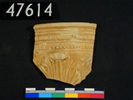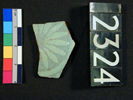| Homepage | Timeline | Maps | A-Z index | Learning |
Foreign relations: Ptolemaic Period
The Ptolemaic empire is one of the Greek states which took shape out of the disintegration of the empire of Alexander the Great. Foreign politics in the third century BC concentrated on the expansion of the Ptolemaic empire, which included at one point parts of Syria, Cyprus and coastal Libya (Cyrenaica). However, the other Greek states had the same expansionist policy, and their history seems to be one of endless struggle with little long-lasting successes. From the end of the second century BC to 30 BC the Roman empire grows ever more prominent on the political and military scene in the Eastern Mediterranean. The first diplomatic contact is already attested around 275 BC (under Ptolemy II). The first century BC is characterised by diplomatic and military struggle between the Roman empire and Egypt. In 30 BC, after the battle of Actium and subsequent suicide of Mark Antony and Cleopatra, Egypt became part of the Roman empire.
Against the centuries of military conflict, Eastern Mediterranean trade flourished; despite the wars, Ptolemaic Egypt and the other Hellenistic kingdoms achieved high if concentrated levels of luxurious living, with extensive Hellenisation of the region.
 |
Megaran bowls were produced in Asia Minor (mid second century AD). They were exported to many countries around the Mediterranean, including Ptolemaic Egypt. | |||||
 |
The most important export goods of Ptolemaic Egypt are grain and papyrus. Faience objects most probably produced in Memphis were exported to many parts of the Ancient world. | |||||